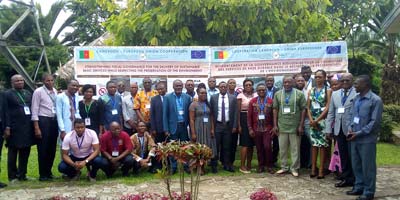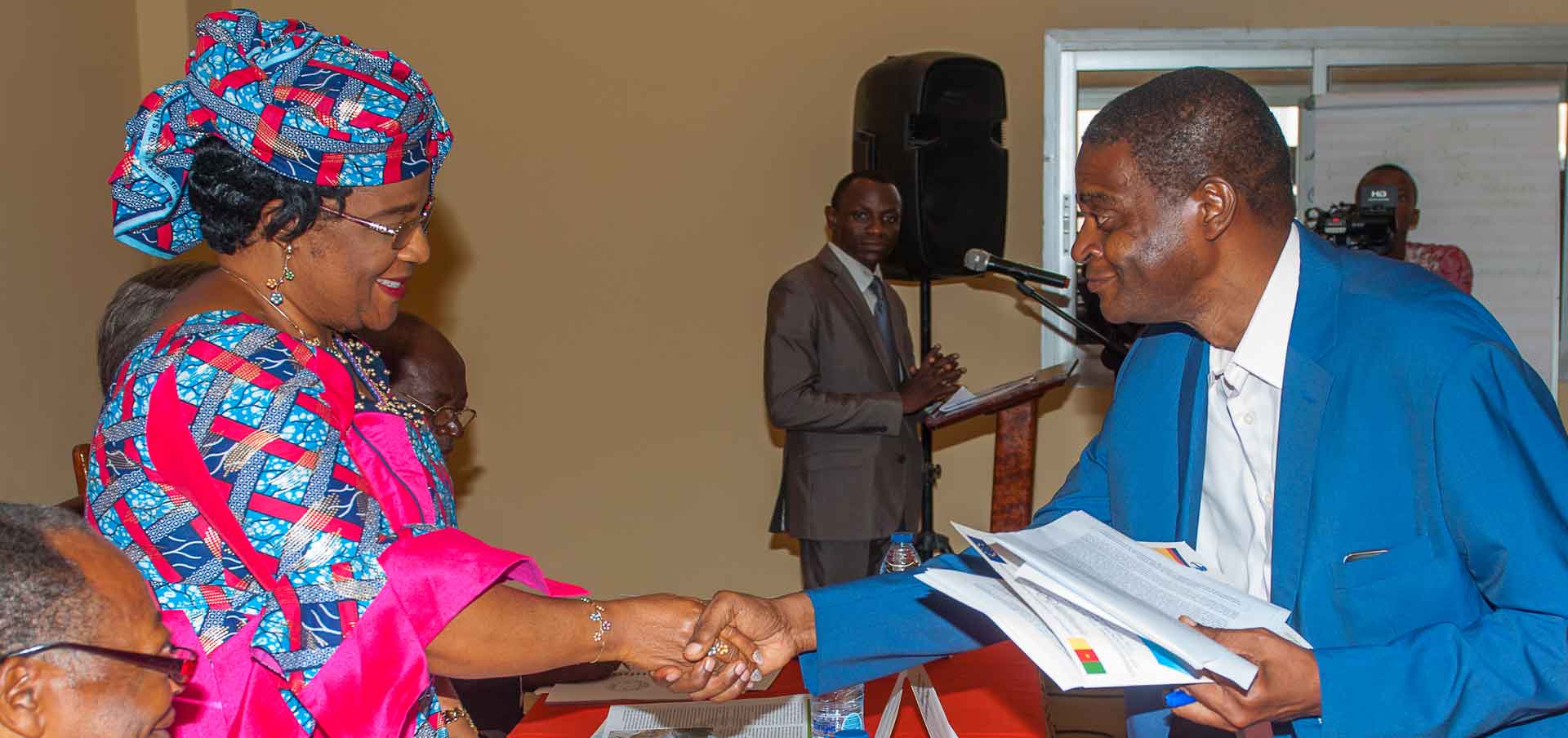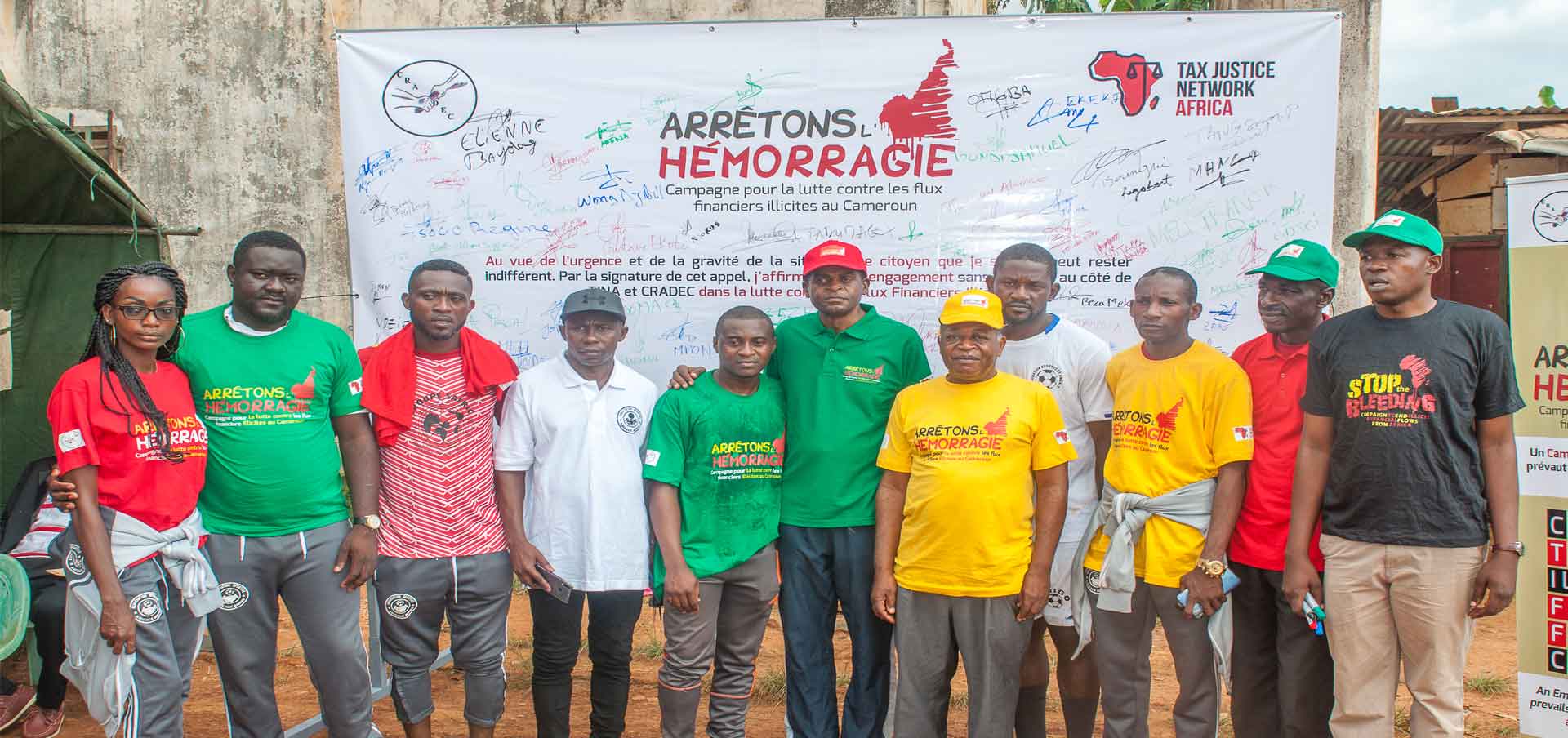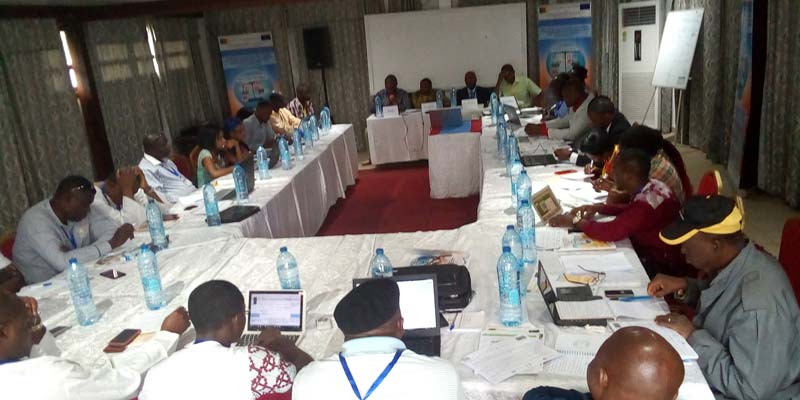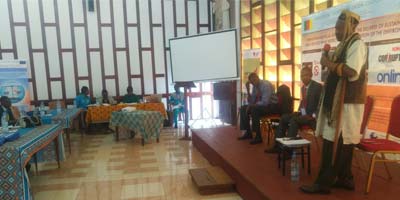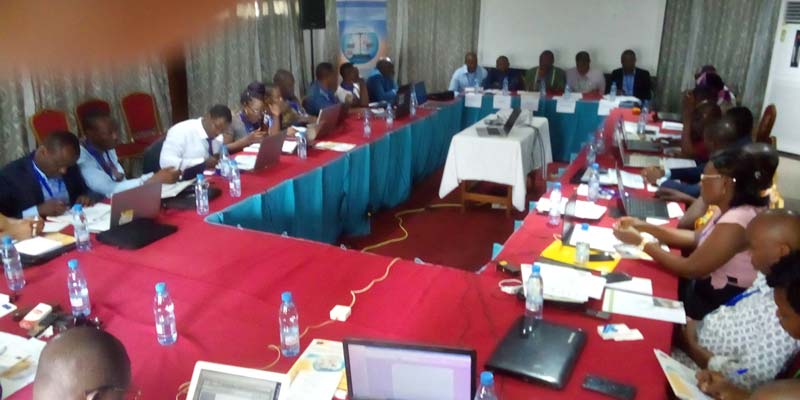The Extractive Industries Transparency Initiative (EITI) plays a crucial role in promoting transparency and accountability in the extractive resources sector in Cameroon. With this in mind, an in-depth analysis of the draft revision of the 2018 decree establishing, organising and operating the EITI Implementation Monitoring Committee in Cameroon was carried out by an ad hoc group of the College of Civil Society Organisations (CSOs).
The purpose of this analysis is to assess the consistency and compliance with existing laws and regulations, as well as the relevance of the provisions proposed in the draft revision in relation to the objective of compliance with the New EITI Standard for 2019. It also aims to make recommendations for improving the draft.
The Extractive Industries Transparency Initiative (EITI) plays a crucial role in promoting transparency and accountability in the extractive resources sector in Cameroon. With this in mind, an in-depth analysis of the draft revision of the 2018 decree establishing, organising and operating the EITI Implementation Monitoring Committee in Cameroon was carried out by an ad hoc group of the College of Civil Society Organisations (CSOs)).
The purpose of this analysis is to assess the consistency and compliance with existing laws and regulations, as well as the relevance of the provisions proposed in the draft revision in relation to the objective of compliance with the New EITI Standard for 2019. It also aims to make recommendations for improving the draft.
Content Summary of the Draft Review
The draft revision of the decree contains several important points:
1. Creation of the EITI Cameroon National Committee: The draft establishes an EITI Cameroon National Monitoring Committee, a public body with legal personality and financial autonomy, with headquarters in Yaoundé.
2. Definitions: The decree introduces definitions for key terms related to the EITI to avoid any ambiguity, particularly with regard to the roles and responsibilities of the various stakeholders.
3. Mission of the EITI National Committee: The National Committee is responsible for promoting good governance, transparency and accountability in the extractive sector, overseeing the implementation of the EITI in Cameroon, encouraging transparency, and preparing an annual report of its activities.
4. Organisation and Functioning: The National Committee is composed of a Supervisory Board and a Permanent Secretariat, each with specific roles. The Committee is funded by contributions from extractive companies and the State budget.
5. Remuneration and allowances: Members of the National Committee, including the Permanent Secretary and staff, may receive allowances and reimbursement of expenses.
Content Analysis
The analysis reveals that the draft revision aims to reinforce the Cameroonian government's commitment to the EITI and address previous criticisms of the governance of the Multi-Stakeholder Group. However, concerns remain about the independence of the appointment of members representing the civil society and private sector constituencies. This approach could lead to weak cohesion within the constituencies, weak governance of the Multi-stakeholder Group, and a potential suspension at the next Validation in October 2023.
Recommendations
To correct these shortcomings and anticipate the potential consequences, the College of CSOs recommends the following actions :
1. Adopt the name "Comité National pour la Transparence dans les Industries Extractives" (CONATIE) in accordance with Article 1 of the draft revision..
2. Develop the definitions of the concepts "Civil Society College" and "Private Sector" for better understanding.
3. Designate all representatives of the Civil Society and Private Sector Constituencies in accordance with the EITI Protocols..
4. Do not split the number of representatives within the Constituencies.
5. Ensure that all mining sub-sectors are represented on the Committee.
6. To ensure equity and inclusion with regard to gender representation on the Committee, in particular for the Civil Society College.
7. Add the task of creating and organising public debate and local communication of EITI information to the Committee's responsibilities.
8. Organise the National Committee into specialised commissions for more effective monitoring of implementation.
In summary, the analysis of the draft revision of the 2018 EITI-Cameroon decree shows the importance of taking into account the EITI principles to guarantee transparency and accountability in the extractive sector. The recommendations made by the College of CSOs aim to reinforce these principles and contribute to the effective implementation of the EITI in Cameroon.




